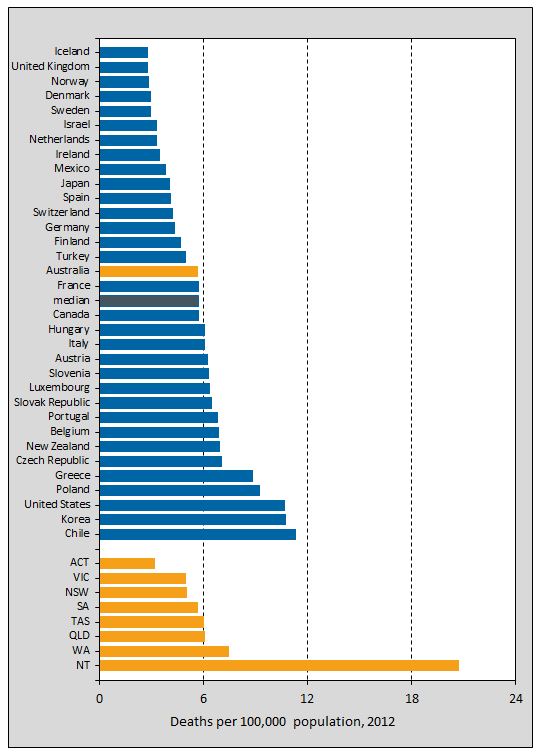 As the Korean entertainment industry absorbs the shocking news of the death of Ladies’ Code members EunB and Rise, let’s take time to reflect and sort out the gamut of emotions that many of us must be going through.
As the Korean entertainment industry absorbs the shocking news of the death of Ladies’ Code members EunB and Rise, let’s take time to reflect and sort out the gamut of emotions that many of us must be going through.
What are your thoughts about this tragic incident? How will the tragedy change current industry practices? What can the industry do to prevent such tragedies from reoccurring?
Gaya: I honestly don’t know how I’m feeling; I’m sad for the familes and loved ones who have lost two people precious to them, and I’m relieved that Rise isn’t suffering anymore; but mostly I’m angry and frustrated that this accident happened in the first places, as well as with the fact that I have very little hope of things improving as a response to this incident.
I’ve said it before, and I’ll say it again: nothing is going to change in the K-pop industry. Polaris Entertainment have already been minimising the impact of the girls’ schedules on the accident, and while we can talk about how idols are “assets” to a company and should be treated with more care, the fact remains that for every idol who debuts, there are many more vying to do the same. With that kind of supply, companies can afford to see idols as expendable.
It would be more worthwhile to focus on South Korea’s public safety laws and awareness programme, hoping that they will continue reaching out to members of the public, with the positive effects trickling down to the idol industry. If there is anything good to come out of this tragedy, it should be a greater awareness of the importance of road safety on the part of the South Korean public; this is a country that managed to reverse the horrific trend of female foeticide and infanticide in an incredibly short amount of time, and I really want to hope that the same can be done with attitudes toward road safety.
Lindsay: I think we can all agree that what we’d LIKE to see is the K-pop industry having mass-eye-opened-awakening to the dangers of driving late at night, in bad weather, with tired people behind the wheels. We’d LIKE to see an overhaul of the idol scheduling system that minimized any sort of dangerous travel. Heck, we’d LIKE to see an overhaul in general on how idols are treated. But what are we going to get? Probably squat.
The bottom line is that two young, energetic, lovely people have died and that their families and friends are never going to be the same again. Those people’s grief should come before anything else. It must be even harder because everything about their personal tragedy is being aired in public as well. I hope the loved-ones involved in this tragedy get some space to mourn. Of course, fans shouldn’t be left out of the mourning as the fan/idol relationship is special, but it is the people that have known them their entire lives that I feel the most heart-ache for.
What would be my dream reaction to this be? One of their mothers (or other family members) takes up the cause of safe-driving for idols and becomes the catalyst for the change in the entire industry. Does that sound too much like a movie plot to be true?
 Camiele: Lindsay and Gaya have pretty much said everything that I’m sure most of us feel. Despite the perception that the idol industry is this beacon of quality music and care for the artist above all else, the trend dictates that that’s so far from the case it’s a wonder the FCC hasn’t done anything to take companies to task. These are, after all, kids. They signed as kids who only knew they wanted the pretty, shimmering diamond they saw broadcast on every channel. Considering the idea that a young person (especially one in an industry that provides them with opportunity and money) speaking out about their circumstances is just looked at as complaining from an over-pampered child, this incident will do jack shit for the industry.
Camiele: Lindsay and Gaya have pretty much said everything that I’m sure most of us feel. Despite the perception that the idol industry is this beacon of quality music and care for the artist above all else, the trend dictates that that’s so far from the case it’s a wonder the FCC hasn’t done anything to take companies to task. These are, after all, kids. They signed as kids who only knew they wanted the pretty, shimmering diamond they saw broadcast on every channel. Considering the idea that a young person (especially one in an industry that provides them with opportunity and money) speaking out about their circumstances is just looked at as complaining from an over-pampered child, this incident will do jack shit for the industry.
The only universal feeling is sadness that two kids died in an accident that could’ve been prevented, and rage at the realization that most likely nothing will change. And the media is lapping this up for no other reason than it’s news about an idol group. I mean, really, sharing the photos of grieving family and friends to the whole world? Is that really any way to show sympathy for someone who’s lost a loved one? It wouldn’t happen for a non-famous citizen; it shouldn’t happen to anyone. However, it’s only fair to give this time to settle, give the family and friends of Eun B and Rise their deserved time to grieve and process. Then it’s time to ask the question that no one wants to or probably will ask: What are we going to do to prevent this from happening again? Blaming gets nowhere. We need solutions, starting at the source.
Lo: Honestly, I don’t see this as an industry problem. I see this as a driving problem. Idol accidents happen with such frequency because they spend more time on the road than any other group of people. Korean driving is horrendous. People speed in crazy weather, driving exams are not exactly stringent, and on a basic license, you can drive a passenger car, a bus with less than 10 seats, a truck with a max capacity of 4 tons, a moped, and a motorcycle with less than 125cc’s of engine displacement. Seatbelt laws are rarely enforced, and most don’t bother if they’re not in the front seat. Add in distractions from phones, internet, etc, and Korean roadways are a nightmare. Motorcycles drive on sidewalks, drivers cut off pedestrian crossings
When I was seven, I was in a crash that would have crippled or possibly killed me, if not for my seatbelt. A driver was on his phone and plowed into the car I was in. Luckily no one was hurt, but it’s a huge impact on how I see driving. I may speed a lot, but I don’t drive in a bubble. Other people are on the road, and you have to be aware of them. There are places I want to visit, but will point blank refuse to get into a car in, and Seoul is one of them.
Rise and EunB’s deaths are tragic, but they are by no means alone. In 2012, Korea was beat only by Chile (among OECD nations) for road deaths per 100,000 people. People all over the world, put down your phones, follow the flow of traffic, use your turn signals, respect that other cars may have the right of way, watch for motorcycles, and for the love of god, USE CAUTION WHEN DRIVING IN BAD WEATHER.
Camiele: I think the reason a few of us consider it also an industry problem is because of the reason you just stated: idols spend so much time on the road. That includes their managers and whomever drives them. The hours and amount of time they spend traveling doesn’t exactly aid in the fact that people in general just do a sucky job at driving in inclement weather. I used the example of drivers of 18-wheelers and the like who travel usually long distances with huge cargo, and have to do so on a very strict schedule.
Now, another point you made is about the enforcement of regulations regarding driving, and besides the obvious, rules about stopping and safety are heavily enforced for those truck drivers. You all make the most important point, though. Something has to change with the traffic infrastructure and enforcing the rules about safe travel on the road, but I also think there needs to be a hard look at the back-to-back scheduling idols and staffs are subjected to and the amount of time on the road in general.
 Mark: I see both sides and I don’t think we can necessarily blame it on solely Korea’s driving culture or the industry’s practices.
Mark: I see both sides and I don’t think we can necessarily blame it on solely Korea’s driving culture or the industry’s practices.
Lo, your links are very telling but one thing I want to point out is that on the road deaths chart, the US is right behind South Korea in third place for having the most road deaths per capita so it doesn’t say too much about Korea’s driving culture. Given that there are probably more drivers and car owners per capita in the US, I’m not convinced that the two driving cultures are really all that different.
The clip from MrRoadWarrior shows that most Korean drivers behave normally but with the exception of a few rotten apples who ruin it for everyone else. There are always people like that, so I don’t think we should necessarily generalize SK’s driving culture as being that much worse through a few clips and first-hand accounts. Plus, have you ever seen LA drivers?
The stat that only 6% of rear passenger seat belts are worn is very alarming, but seat belts didn’t really become a mandatory thing in the US until fairly recently. Given the publicity surrounding this tragedy, I wouldn’t be surprised if the public outcry will initiate a “Click It or Ticket” movement much like the one we experienced in the US about half a decade ago.
I think I’m being a bit optimistic when I say that things will change for the better in the entertainment industry. If this doesn’t open the eyes of industry executives, then nothing will. Having idols postpone their schedules is one thing, but having them lose their lives is another. If companies can’t protect their idols (especially smaller companies which don’t have replacements on standby), their most precious assets, then its really not worth the risk of putting them out there. From a financial perspective, it’s just bad business.
Gaya: Inkigayo is already at work on the seatbelt thing, making a point to mention them their latest “Eco Drive” PSA ditty with help from BTS.
I don’t know if it’s reasonable of me, but these songs are pissing me off right now. I get making messages more easily digestible and less confronting, especially for a younger audience, but I honestly believe that taking a more direct approach is what is needed; painful as some ads are to watch (warning: graphic content at link), they have a much greater impact on the public conscience than a bunch of smiling idols with drawn on two-point (lap-only) seatbelts –which, by the way, are not as safe as 3-point, or lap and shoulder, seatbelts, so please take note, Korean car manufacturers — ever could.
Andy: The loss of EunB and Rise is tragic and heartbreaking. I can’t imagine the pain and sorrow their families and friends are going through.
Accidents happen, but this seems highly preventable, and it makes me angry. I would hope, now, that efforts are made to better protect those involved in the entertainment industry: better working conditions, wages, nutrition education…and not having them out at 1am in the morning during rain. They should not be rushing around 18 hours a day going from place-to-place. Also, for the entire population, education regarding motor vehicle safety should be widespread. How many MVs, behind-the-scenes videos, and dramas have we seen where those involved are not wearing seat belts or looking at the road? Can Korea get a “Click-it or Ticket” program? Perhaps the public and industry insiders, in protest and anger, will take up the banner.
Despite my hope that something good will come out of this, particularly more care towards artists and staff, I highly doubt anything will happen. Even from a business perspective, it would be wise to be cautious. After all, if you look at artists as commodities, then you’d protect them the same way you protect intellectual property and money: as much as possible. Having hundreds of trainees waiting for a shot doesn’t help matters either, since it makes people highly replaceable. For some reason, humans as commodities aren’t seen the same as money, and that’s sickening and stupid.The industry needs to first find its humanity and fans need to stop being demanding — or better yet, hurt the companies where they will feel it: their wallets. Once this happens, change can come. Or I hope so.
(Bitre, Korea4Expats, YouTube[1][2][3][4][5][6]. Images via: SBS Australia, Polaris Entertainment, Bitre. Second Image of Rise and EunB: credit to owner)


